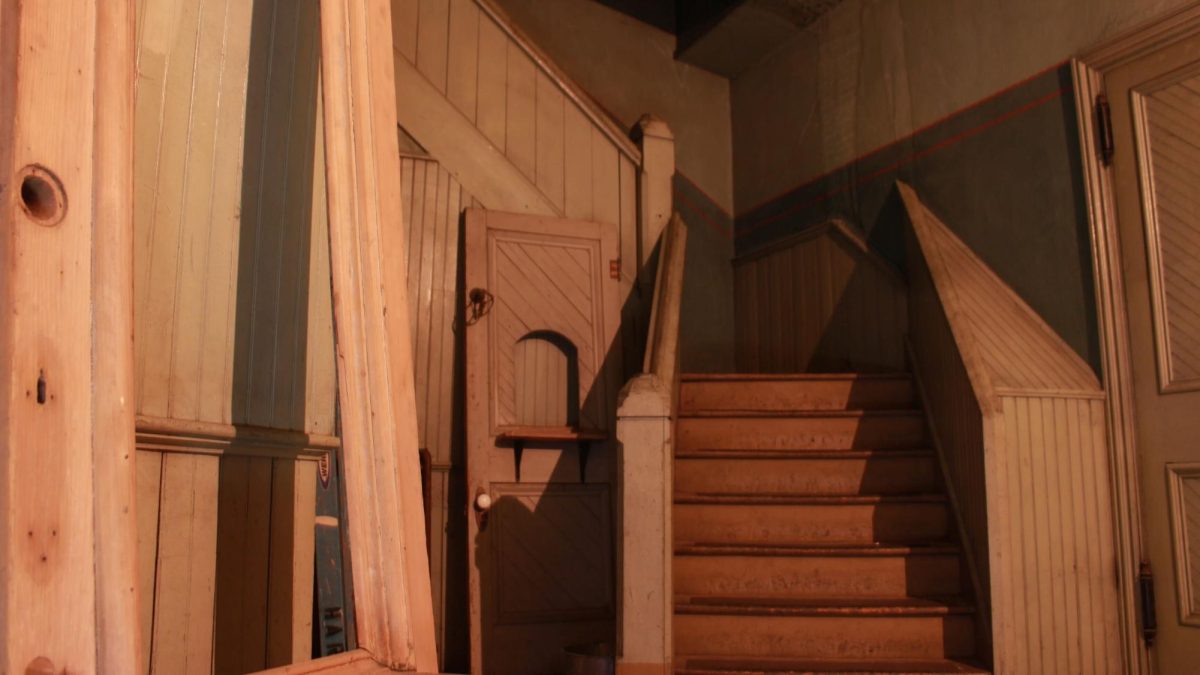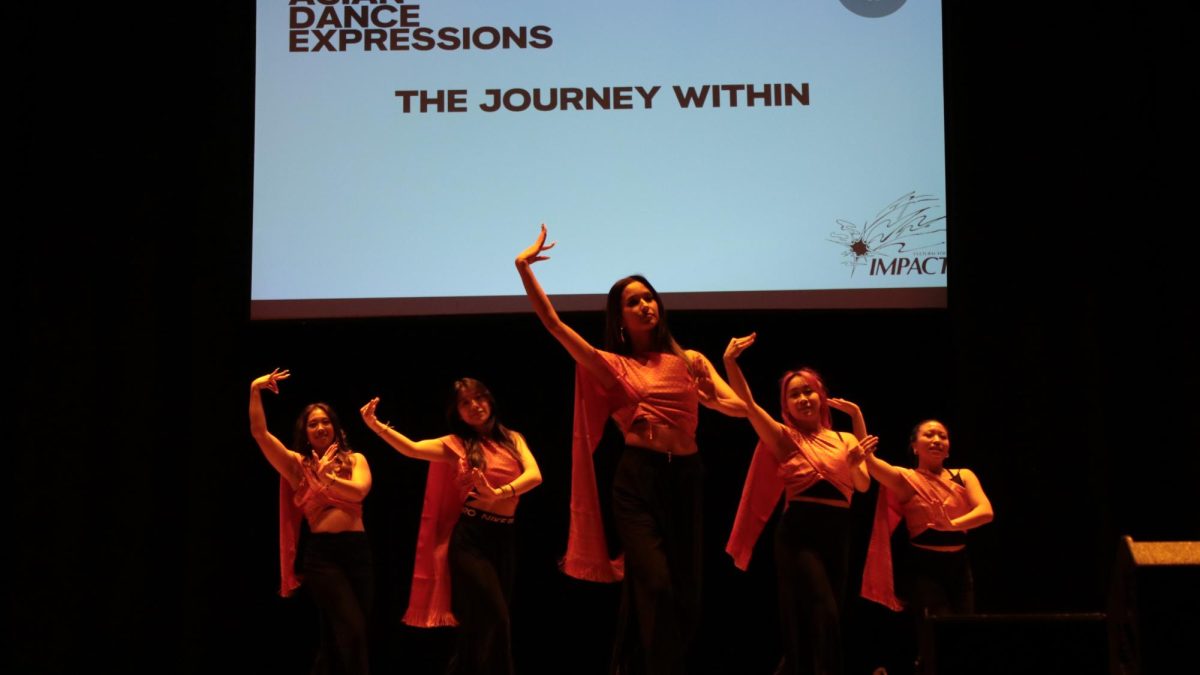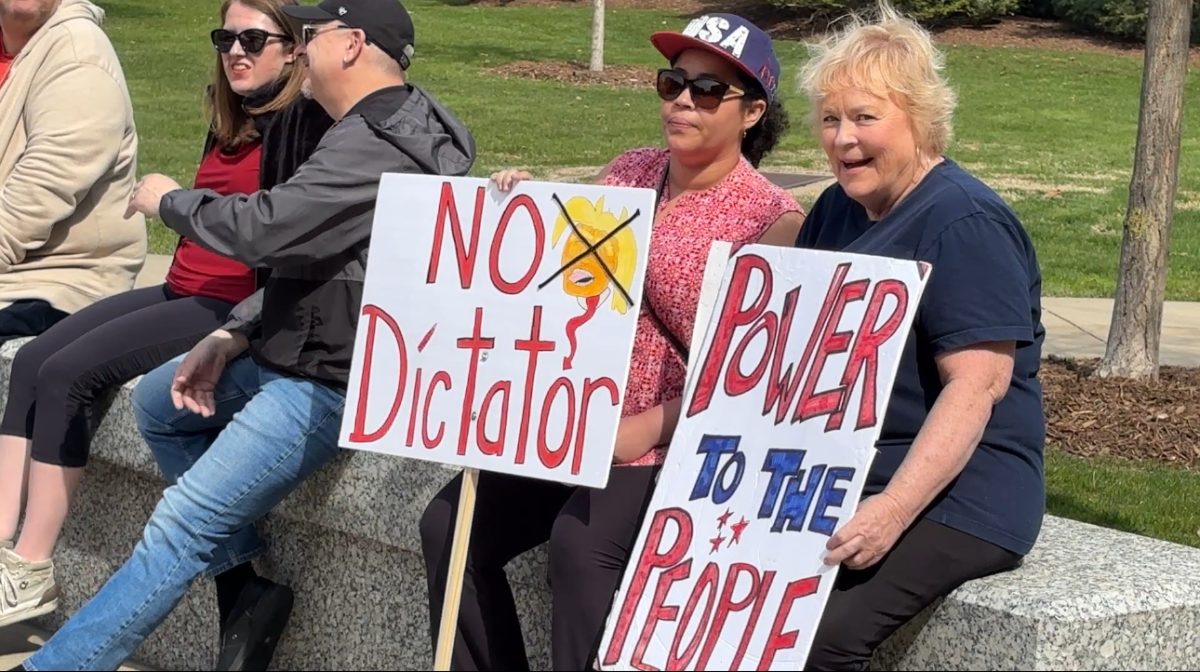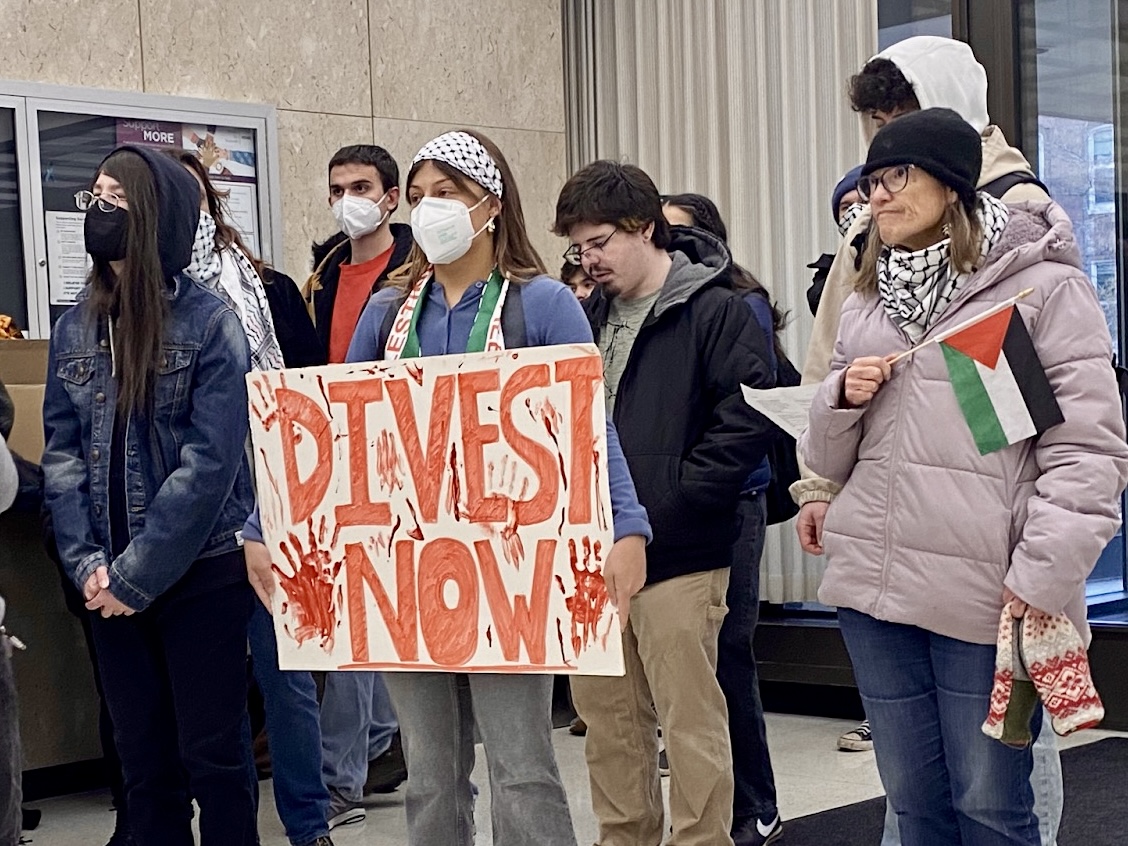EAST LANSING — The scent of competition lingered in the air as Survivor Michigan State contestants adjusted their buffs and strategized gameplay. Over 200 applicants had been narrowed down to just 20. At the end of it all, who would be the game’s sole survivor?
That is just what fans of Survivor MSU wanted to know as season three kicked off Sept. 3.
Survivor MSU is a club that hosts their own version of the competition TV show “Survivor,” right here on MSU’s campus. The cult classic reality TV show features contestants facing off to compete in mental and physical challenges as they attempt to survive multiple elimination rounds until only one contestant remains.
Self-proclaimed “Survivor” superfan Ryan Weingarden is a past Survivor MSU contestant turned production member.
“The big difference is we’re not starving in the woods,” Weingarden said. “We’re all in our clothes, we’re all eating food.”
Filming for season three, “House of Cards,” is officially underway with 20 contestants vying for the $500 prize earned by the sole survivor. The competition is run similarly to its professional counterpart, with contestants sorted into tribes, challenges and a player voted out each week.
Sarah Stamm knows the way these contestants are feeling because she was in their shoes during season one of Survivor MSU. She now works on the production team.
“It’s a very cutthroat atmosphere.” Stamm said. “It’s about to get so crazy. Over the course of the semester, they’re gonna dig at each other’s throats and that’s the best part.”
The competition will last the course of the semester, with each episode eventually being aired on YouTube. Seasons one and two, which were filmed last year, are in the editing process and will be uploaded to YouTube in the coming months.
Survivor MSU President Michael Wallis is a founding member, second-year law student and devoted “Survivor” fan. He shared some of the joys and struggles that come with participating in Survivor MSU.
Wallis said he wanted to bring “Survivor” to MSU after participating in the game at the University of Maryland, where he completed his undergraduate education.
“I’m a huge fan of the show and I thought it would also help me get to know people who also had similar interests—whether they like the show or they just like being competitive as well,” Wallis said.
Wallis started the club in the summer of 2022 and the first season was filmed throughout that fall. Though the club has released a trailer of season one, the footage is yet to be edited into episodes and released on the club’s YouTube.
Wallis said that the post-production process of editing and posting the episodes has been a challenge for the club. He attributed this to a lack of excitement for the more grueling work to be done after the cameras stop rolling.
“They film it but then they struggle to edit it, and I think it’s because it’s not as rewarding or desirable,” Wallis said. “You’re editing from a closed room, which maybe isn’t the best environment. When you’re filming and you’re experiencing it live it’s way more interesting and way more entertaining.”
Wallis said the club is searching for more students to get involved in the post-production process, as they fully intend to release all three seasons as soon as possible.
Despite the shortage of post-production staff, there is no shortage of students who want to compete to be the game’s next sole survivor.
Former Survivor MSU Vice President Jenna Tryan, who remains a current and founding member of the club, described just how competitive their selection process is.
“This season we had 250 people apply and we selected 20 to play,” Tryan said.
Tryan said applications for the game are posted on various social media platforms, such as Snapchat and Reddit. Selected applicants will go through multiple rounds of interviews.
Both Wallis and Tryan described the kind of applicants they look for and explained how to stand out in the interview process.
Tryan said the TV show “Survivor” brings the drama by bringing together people who are very different from one another. Survivor MSU tries to mimic this by choosing students that will make up a diverse pool of different majors, ages and backgrounds.
“We want people who are going to make good TV. So, if you’re a little bit crazy, go for it. If you’ve got a weird thing in the back of your room—you have a weird stuffed animal—tell us about it. If you like to bring the high-energy, you like to swear, you have a weird catch phrase—we want to hear it,” Tryan said.
Wallis said, “Our interview process is not professional at all. We want to see your flaws, we want to see you think in your head, we want to see you narrate and tell a story. That’s what ‘Survivor’ is all about. It’s narrating and it’s storytelling.”
“If someone is a good speaker—immediately, I’m very integrated,” Wallis said.
For those who are shy, there are other ways to stand out in the interview process.
“If you’re not a great speaker, that doesn’t mean you are less desirable. We look for other aspects, like your commitment,” Wallis said.
Wallis said that for him, a sign that someone will be committed to the process is if they are a huge fan of “Survivor.” Another sign of commitment is past leadership experiences.
“Survivor’s very draining. It’s very taxing and emotionally damaging, especially because you are voting out your friends,” Wallis said. “I’m looking for people who can endure and stick through the process.”
According to Wallis and Tryan, the commitment for Survivor MSU is huge.
Wallis said, “We don’t just meet once a week like other clubs. We meet bi-weekly, tri-weekly.”
Tryan said the commitment is semester-long, ending the week before finals. Committing time and effort is essential to any player hoping to be the game’s next sole survivor.
Wallis said, “There’s stakes involved. If you don’t commit your time you’re being voted out.”
Wallis said that during the interview process for seasons one and three, some applicants that were selected turned down the experience because they realized the time commitment would be too much.
“Honestly, we appreciate that. I’d rather them quit now before the game starts than during the game,” Wallis said.
This season, contestants are sorted into four tribes of five people. Their tribes were determined by picking a random playing card, with each suit corresponding to a specific tribe.
Wallis said the tribes are named after the Fijian words for the four playing card suits: Yalo is the red tribe, Daimani is the purple tribe, Ivesu is the green tribe and Simede is the black tribe.
Tryan said, “They will be competing in challenges week after week. If you lose the challenge, a few days later we have tribal council where one person will be voted off. We get to the middle of the game where we have the jury, so now everyone is competing for individual immunity. And if you get voted off, you go sit on a bench, where you will eventually vote to see who wins the game.”
These contestants are getting a taste of what it would be like to compete on the show “Survivor,” and all of the cutthroat competition that comes with it.
“Everything we do in college ‘Survivor’ is trying to mimic the show,” Tryan said.
Wallis said, “Survivor MSU is one of the most niche experiences you can find on campus because it’s a game about social politics and about strategizing and outwitting the competition.”
Though the club is well into season three, Wallis encouraged those who are interested in becoming involved with Survivor MSU to join the production team.
“I feel like every club has this inflated ego like [they’re] the coolest group on campus, I kind of feel like we have the crown,” Wallis said.























